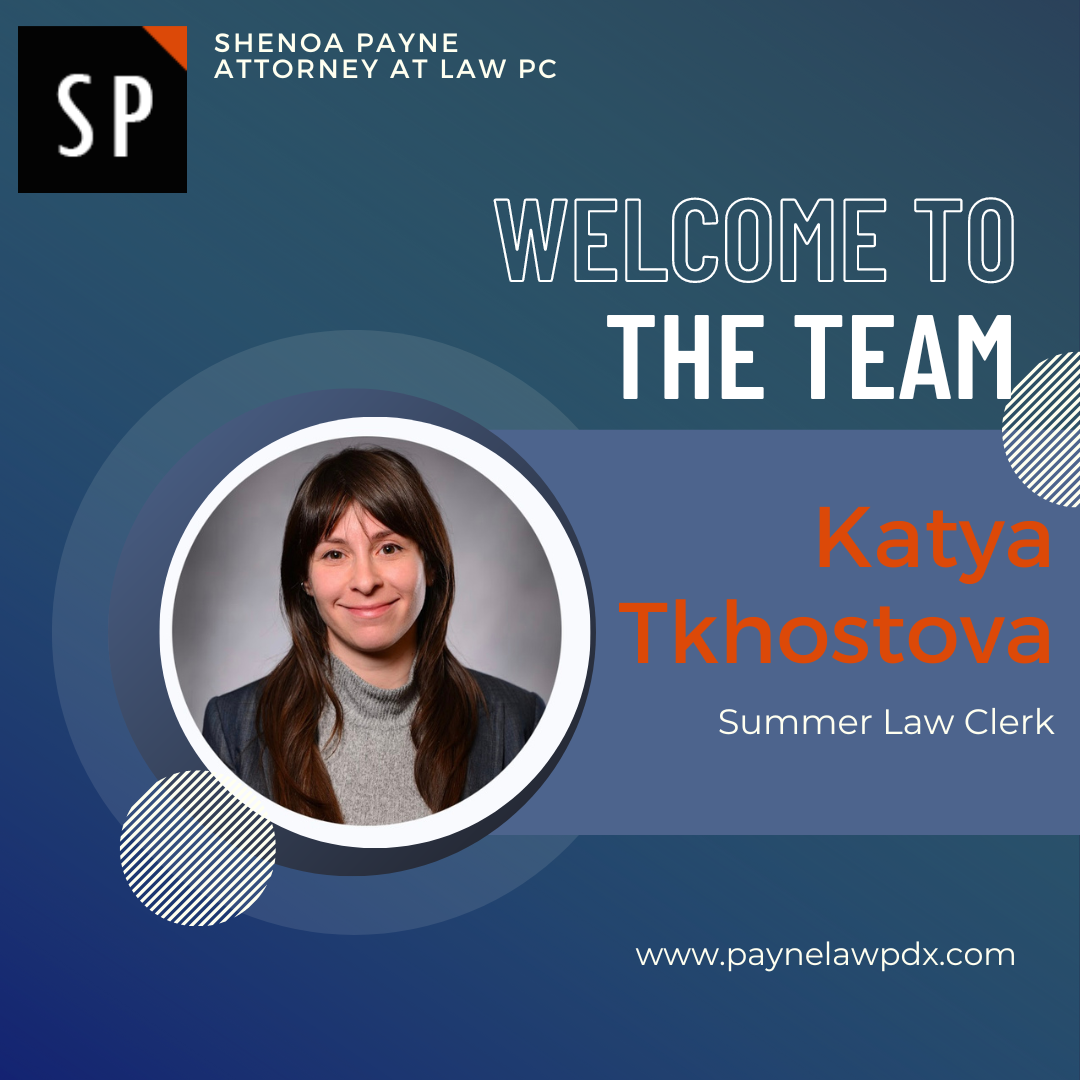Firm Welcomes Summer Law Clerk Katya Tkhostova
NEWS
May 13, 2024
My firm is excited to welcome our summer law clerk, Katya Tkhostova. Katya is a rising 3L at Willamette University College of Law. She began her legal career journey to help reshape the legal profession and the justice system. She has always been passionate about advocacy and collaborating with like-minded individuals to create impactful, long-lasting change. Katya is interested in many areas of law, including Civil Rights, Employment, Environmental, and Transactional Law. Katya loves the Pacific Northwest and looks forward to practicing in Oregon after she graduates. In Katya's free time, she loves to garden, hike, and travel. Katya has a cat named Viola. Welcome Katya!
Firm Files Amicus Curiae Brief in Oregon Supreme Court Case Requesting Abandonment of “Magic Question” Juror Rehabilitation
News
October 6, 2023
Yesterday, Shenoa Payne Attorney at Law PC filed an Amicus Curaie Brief on on behalf of the Oregon Trial Lawyers Association in the criminal case of State v. Villeda. There, the trial court denied the defendant’s for-cause challenge of a juror based on actual bias. The juror made several statements during voir dire revealing her bias toward victims alleging sexual assault or rape (i.e., statements that she tended to believe survivors, a woman would not lie about being raped, it was difficult even being in the room and her emotions would not allow her to be fair). Despite those statements, both the trial court and the prosecutor attempt to “rehabilitate” the juror by asking the “magic question” — whether she could set aside her feelings and follow the the law and the court’s instructions. Despite showing significant resistance and even tears, the juror ultimately capitulated with a simple “yes.” The trial court denied defendant’s for-cause challenge based on the juror’s affirmative answer to that “magic question.”
OTLA’s Amicus brief, authored by this firm, argued that juror rehabilitation is a fiction and that once a juror’s answers in voir dire reveal a disqualifying bias, the juror cannot be rehabilitated by subsequent questioning, later retractions, or promises to be fair — but certainly not with a simple yes answer to the magic question. You can access the brief here.


